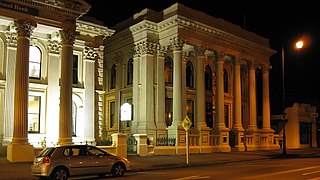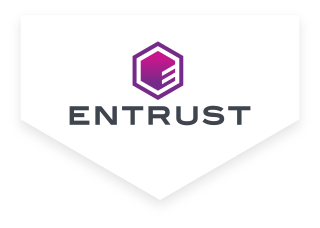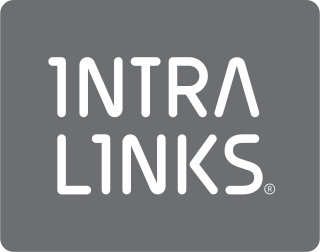
Mergers and acquisitions (M&A) are business transactions in which the ownership of companies, business organizations, or their operating units are transferred to or consolidated with another company or business organization. This could happen through direct absorption, a merger, a tender offer or a hostile takeover. As an aspect of strategic management, M&A can allow enterprises to grow or downsize, and change the nature of their business or competitive position.

A non-disclosure agreement (NDA), also known as a confidentiality agreement (CA), confidential disclosure agreement (CDA), proprietary information agreement (PIA), or secrecy agreement (SA), is a legal contract or part of a contract between at least two parties that outlines confidential material, knowledge, or information that the parties wish to share with one another for certain purposes, but wish to restrict access to. Doctor–patient confidentiality, attorney–client privilege, priest–penitent privilege and bank–client confidentiality agreements are examples of NDAs, which are often not enshrined in a written contract between the parties.
In business, a takeover is the purchase of one company by another. In the UK, the term refers to the acquisition of a public company whose shares are publicly listed, in contrast to the acquisition of a private company.
Trusted Computing (TC) is a technology developed and promoted by the Trusted Computing Group. The term is taken from the field of trusted systems and has a specialized meaning that is distinct from the field of confidential computing. With Trusted Computing, the computer will consistently behave in expected ways, and those behaviors will be enforced by computer hardware and software. Enforcing this behavior is achieved by loading the hardware with a unique encryption key that is inaccessible to the rest of the system and the owner.
Electronic business is any kind of business or commercial activity that includes sharing information across the internet. Commerce constitutes the exchange of products and services between businesses, groups, and individuals; and can be seen as one of the essential activities of any business.

Due diligence is the investigation or exercise of care that a reasonable business or person is normally expected to take before entering into an agreement or contract with another party or an act with a certain standard of care.
Software AG is a German multinational software corporation that develops enterprise software for business process management, integration, and big data analytics. Founded in 1969, the company is headquartered in Darmstadt, Germany, and has offices worldwide.
Enterprise content management (ECM) extends the concept of content management by adding a timeline for each content item and, possibly, enforcing processes for its creation, approval, and distribution. Systems using ECM generally provide a secure repository for managed items, analog or digital. They also include one methods for importing content to manage new items, and several presentation methods to make items available for use. Although ECM content may be protected by digital rights management (DRM), it is not required. ECM is distinguished from general content management by its cognizance of the processes and procedures of the enterprise for which it is created.
Valuation using discounted cash flows is a method of estimating the current value of a company based on projected future cash flows adjusted for the time value of money. The cash flows are made up of those within the “explicit” forecast period, together with a continuing or terminal value that represents the cash flow stream after the forecast period. In several contexts, DCF valuation is referred to as the "income approach".
In economics, valuation using multiples, or "relative valuation", is a process that consists of:

Bidding is an offer to set a price tag by an individual or business for a product or service or a demand that something be done. Bidding is used to determine the cost or value of something.
A venture round is a type of funding round used for venture capital financing, by which startup companies obtain investment, generally from venture capitalists and other institutional investors. The availability of venture funding is among the primary stimuli for the development of new companies and technologies.

Entrust Corp., formerly Entrust Datacard, provides software and hardware used to issue financial cards, e-passport production, user authentication for those looking to access secure networks or conduct financial transactions, trust certificated for websites, mobile credentials, and connected devices. The privately-held company is based in Shakopee, Minnesota and employs more than 2,500 people globally.
A virtual data room is an online repository of information that is used for the storing and distribution of documents. In many cases, a virtual data room is used to facilitate the due diligence process during an M&A transaction, loan syndication, or private equity and venture capital transactions. This due diligence process has traditionally used a physical data room to accomplish the disclosure of documents. For reasons of cost, efficiency and security, virtual data rooms have widely replaced the more traditional physical data room.
Document review, in the context of legal proceedings, is the process whereby each party to a case sorts through and analyzes the documents and data they possess to determine which are sensitive or otherwise relevant to the case. Document review is a valuable main staple of the type of work performed by attorneys for their clients, though it is increasingly common for the work to be performed by specialized document review attorneys.
Management due diligence is the process of appraising a company's senior management—evaluating each individual's effectiveness in contributing to the organization's strategic objectives.

Intralinks Holdings, Inc., founded in 1996, is a global technology provider of inter-enterprise content management and collaboration solutions. Its products serve the enterprise collaboration and strategic transaction markets, enabling the exchange, control, and management of information between organizations.
Cloud Elements is a cloud API integration platform that enables developers to publish, integrate, aggregate and manage all of their APIs through a unified platform. Developers can use the platform to connect categories of cloud services using uniform APIs or simply synchronize data between multiple cloud services using its integration toolkit.

Ansarada Group Limited (Ansarada) is an Australian publicly listed company (ASX:AND) that develops products used worldwide by companies, advisors, and governments to maintain their most crucial information and processes in deal and transaction management, board management, compliance, and procurement. Ansarada intends to allow organizations to run more efficiently with reduced risk and an increased ability to make fast, confident decisions. Over $1 trillion in deal value has been transacted on the Ansarada platform.
Dynamic line rating (DLR), also known as real-time thermal rating (RTTR), is an electric power transmission operation philosophy aiming at maximizing load, when environmental conditions allow it, without compromising safety. Research, prototyping and pilot projects were initiated in the 1990s, but the emergence of the "smart grid" stimulated electric utilities, scientists and vendors to develop comprehensive and sustainable solutions.






